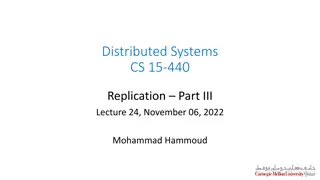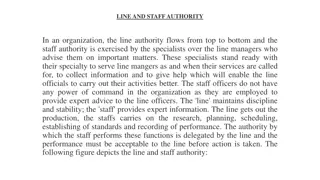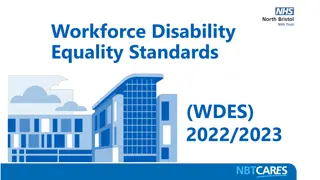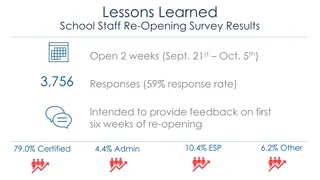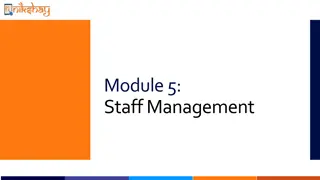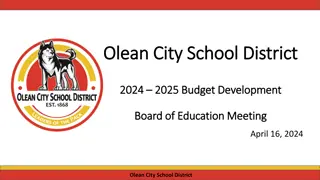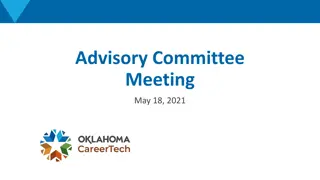Safe Schools Protocols for Staff Members
School staff members are required to adhere to safe school protocols to ensure the protection of students from harm or risk. This includes reporting child abuse, following suicide prevention guidelines, and conducting violence threat risk assessments. Staff must promptly report any concerns and involve appropriate authorities to maintain a safe learning environment for all students.
Download Presentation

Please find below an Image/Link to download the presentation.
The content on the website is provided AS IS for your information and personal use only. It may not be sold, licensed, or shared on other websites without obtaining consent from the author.If you encounter any issues during the download, it is possible that the publisher has removed the file from their server.
You are allowed to download the files provided on this website for personal or commercial use, subject to the condition that they are used lawfully. All files are the property of their respective owners.
The content on the website is provided AS IS for your information and personal use only. It may not be sold, licensed, or shared on other websites without obtaining consent from the author.
E N D
Presentation Transcript
Minorities and Sustainable Development By Dr. MENSAH C. Marius Assistant Professor Faculty of Law- University of Maribor Cocou.mensah@um.si
What is an ethnic minority The term is generally understood to be those groups exhibiting cultural preferences different to those of the majority population, or groups with different cultural and societal origins. However in the empirical field, ethnic minority is likely to refer only to a group of individuals who were born in, or are citizens of, another country. It can also be the case that the term refers only to those individuals with a different racial background. Evidently, this can lead to discrepancies and the omission of data which correctly capture those who can also be regarded as belonging to an ethnic minority: naturalized immigrants; autochthonous minorities who, although present for hundreds of years have not assimilated to natives; and second and third generations of immigrants. Matters are further complicated by countries using different empirical definitions of what it means to be an ethnic minority. 3
The term can be broad and flexible and encompass all categories of the population of foreign origin (including recent migrants and descendants of previous generations of migrants), ethnic minorities, linguistic minorities, religious minorities, and stateless people. minorities, national 4
The UN special Rapporteur The UN has a special Rapporteur on minority issues, Dr. Fernand de Varennes, under Human Rights Council resolution 34/6, and his mandate identified the need for the new global development agenda to include specific goals relating to addressing inequality and promoting social inclusion, which include specific requirements and targets focused on activities to address the situations of disadvantaged minority groups. 5
The Challenge Social and economic exclusion remains an everyday challenge to millions of members of ethnic minorities living in Europe today. Underlying differences between ethnic minorities and majority populations, as defined by their cultural and ethnic backgrounds, often correlate with gaps in their labor market outcomes. Being a member of an ethnic minority per se often bears a disadvantage in terms of relative labor market outcomes vis -vis the majority population. 6
Integration challenges appear in a variety of forms, from unequal access to health care and social services to unemployment, underemployment, and substandard remuneration of individuals belonging to different ethnic minorities. Labor market segmentation is a particularly worrisome issue, since equal labor market opportunities are a cornerstone for achieving not only a high quality of life for minorities themselves but also prosperity and social cohesion for society at large. 7
8 Minority issues in Asia (as example) India is a country with diverse ethnic groups. To ensure special rights and benefits for ethnic minority groups aim at the sustainable development of the ethnic groups, the Indian Government has regulations on preferential treatment in terms of policies, capital provision, education and employment opportunities included in its Constitution. In addition to providing legal protection to minorities in the Constitution, the Government also implements national projects to promote socio- economic development in ethnic minority areas, establishing various agencies to manage issues of the groups. Ethnic minorities as key contributors to managing natural resources and addressing climate change. They are the best people to protect the forests. That is why the Government of Viet Nam will strongly prioritise ethnic minorities by providing more resources and opportunities for them to participate in the policy processes.
9 IN EUROPE Since 2000 the European Union (EU) has introduced legislation to combat discrimination, the problem persists, with the need for new measures recently highlighted by the global Black Lives Matter protests. A number of studies also point to the cost of racial discrimination not only for the individuals concerned but also for society as a whole. For instance, a 2018 EPRS report argued that the loss in earnings caused by racial and ethnic discrimination for both individuals and societies amounts to billions of euros annually. EU citizens also acknowledge this problem: a 2019 survey found that over half of Europeans believe racial or ethnic discrimination to bewidespread in their country. racial and xenophobic
10 Solutions To address racial discrimination and the inequalities it engenders, the European Commission has put forward a number of equality strategies and actions. One such action, the second European summit against racism, was held on 21 March 2022. The European Parliament, meanwhile, has long been demanding an end to racial discrimination. In recent resolutions, the Parliament has called for putting an end to structural racism, discrimination, racial profiling andpolice brutality; for asserting the right to protest peacefully; and for boosting the role of culture, education, media and sport in the fight against racism.
Minorities & Environment: THE EU GREEN DEAL The European Green Deal aims primarily to fight against global warming and to offer a strong response to the multiple environmental challenges facing all countries. The consequences of the above activities will have terrible impacts on the European and world economy, at all levels. Already the respiratory diseases due to pollution, the costs of care, and the impact on the standard of living of the populations is clearly indexed. The socio-cultural, political and economic impacts of global warming no longer leave rapid action in doubt. The role of minorities in implementing the new set of climate action rules is important
THE CHALLENGE All EU countries* MUST reach the bar zero greenhouse gas emissions by 2050. In the future, all actions, investments, European policies will consolidate the European climate law, which will systematically reduce public and even private investments in fossil fuels or polluting technology across the EU. , since 2050 is the target year for achieving these goals. project financing and
EFFECTS Rationalize the use of available resources Promote circular economy focused on recycling and responsible consumption Restore ecosystems and biodiversity by fighting against the depletion of species and reducing pollution. Support social justice Convert or Adapt all sectors of the economy to finance projects that have a positive impact on the environment Invest in environmentally friendly technologies Integration for minorities & complex climate action
Paul Polman, EX CEO, Unilever Business can only flourish in societies in which human rights are respected, upheld and advanced. People are our greatest asset, and empowering them across our supply chain is not only the right thing to do, but also ensures a sustainable future for the business. Our ambition is to embed the promotion of human rights into every function, every role, and every corner of our organization.




